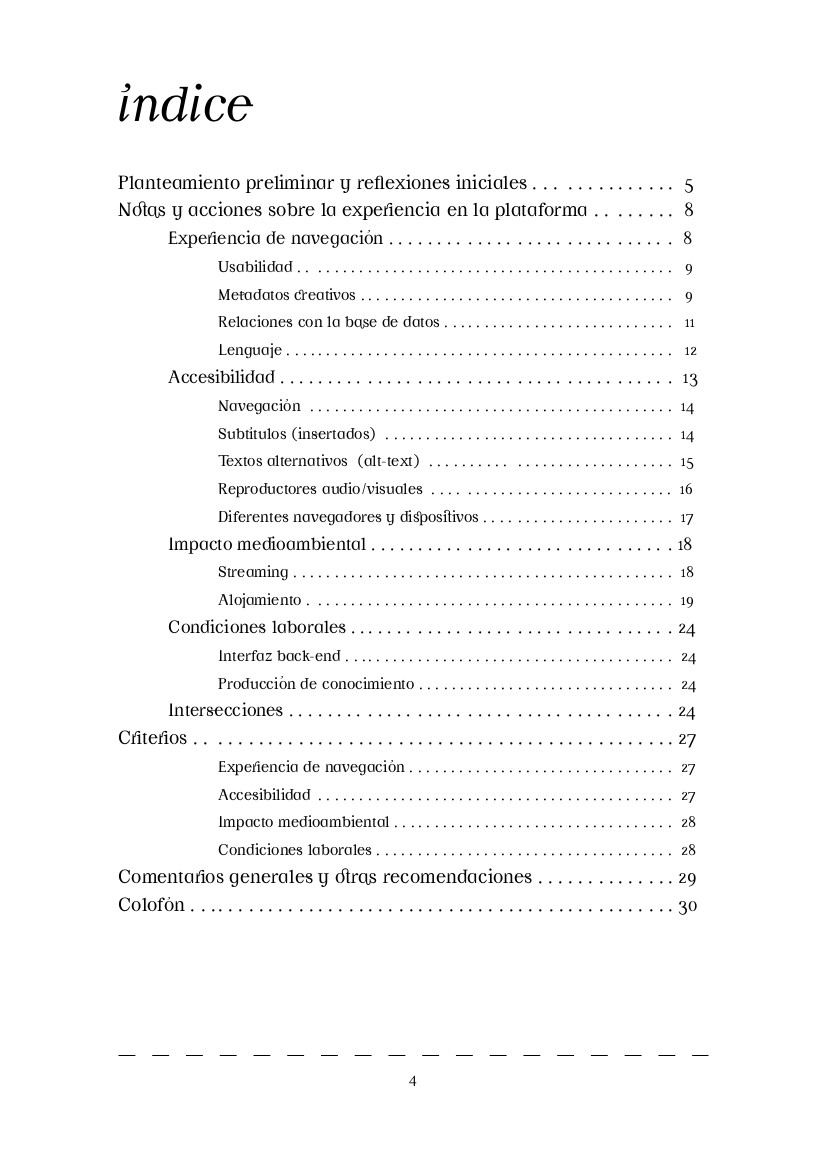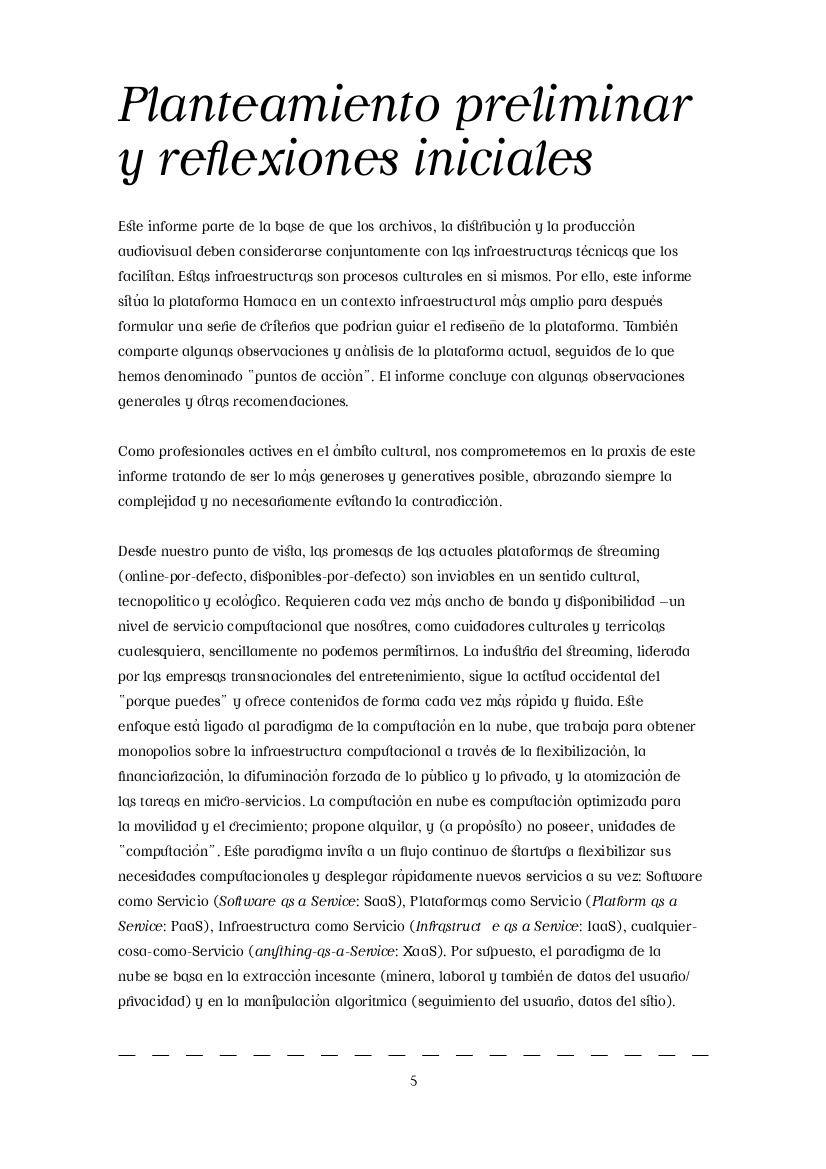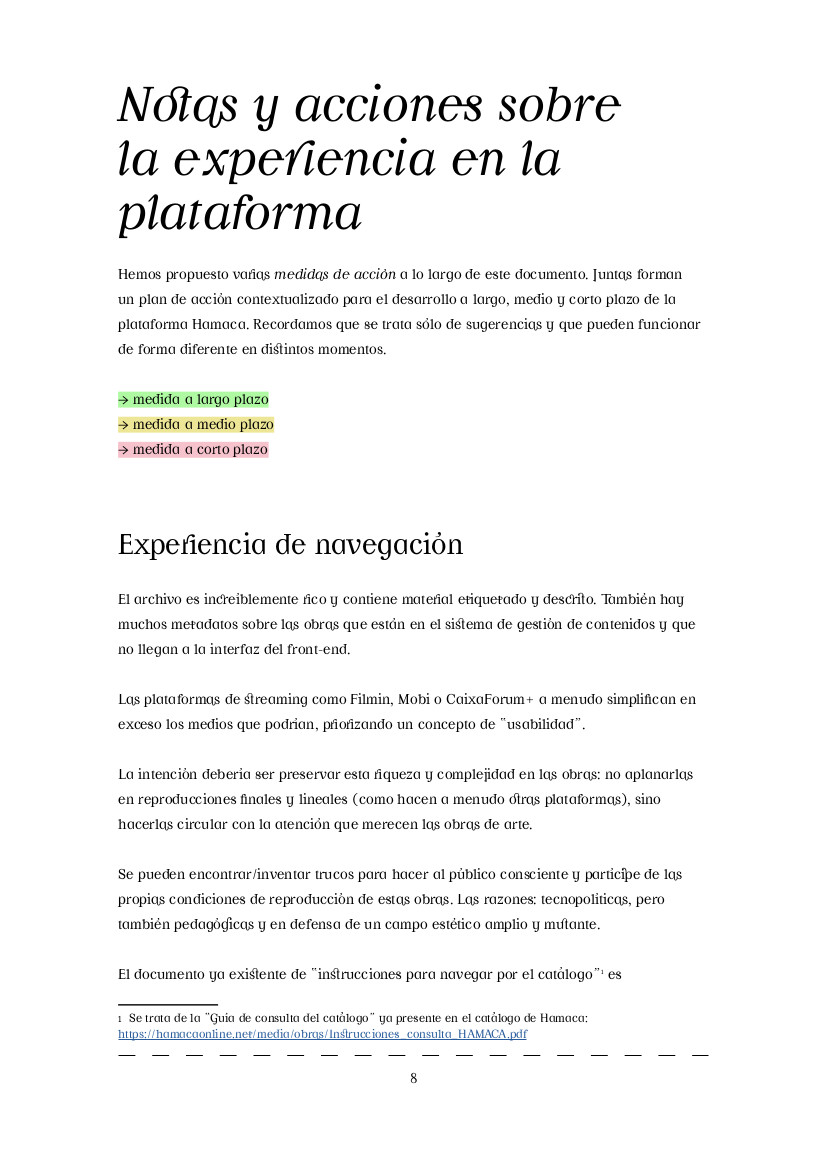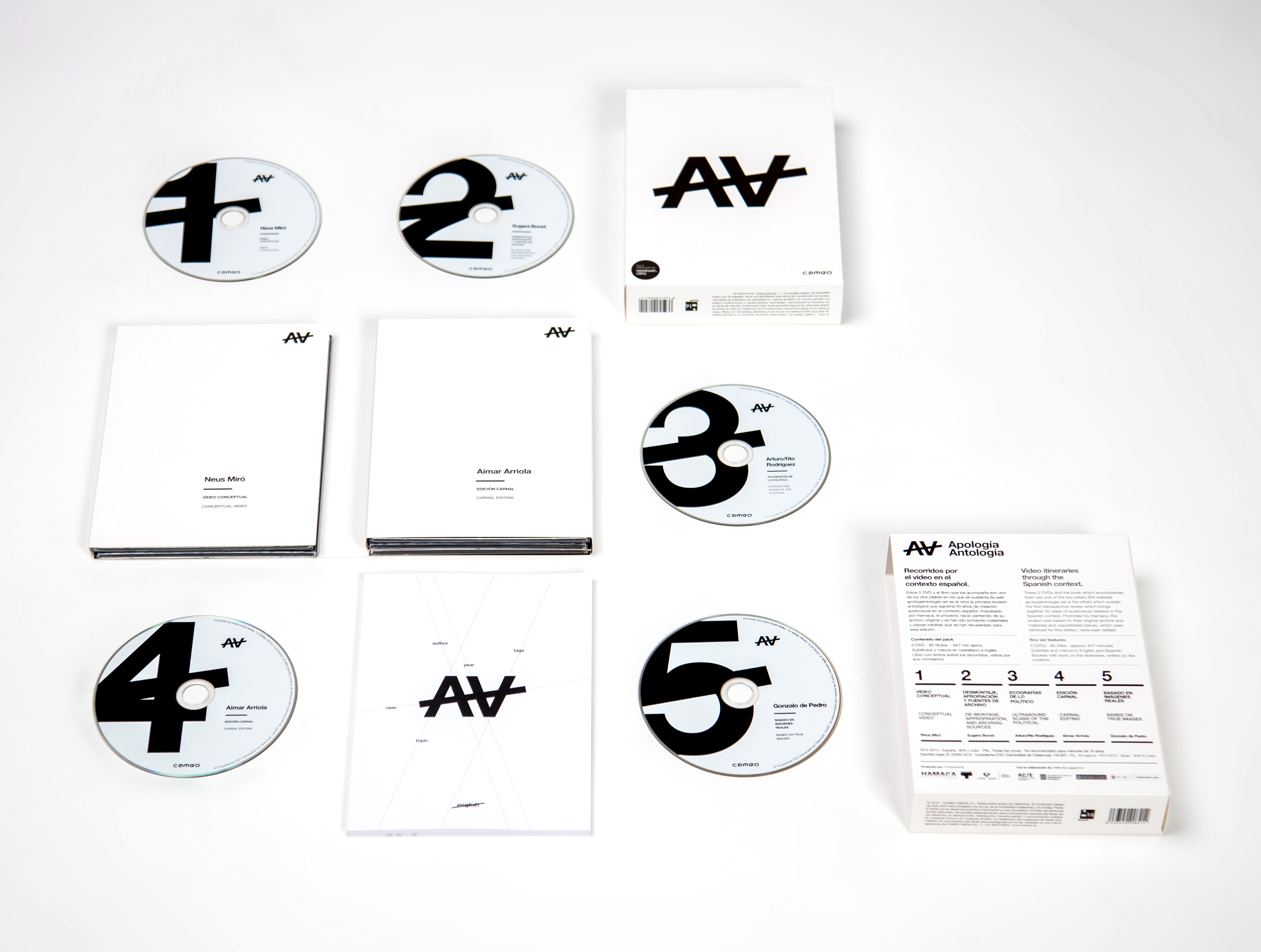
19 de juny de 2024
Publicació que reuneix els principals aspectes que una pàgina web d'una entitat cultural deuria o podria tenir en compte entorn de criteris de sostenibilitat, amb especial atenció a les quals prenen forma de plataforma i incorporen contingut en vídeo.
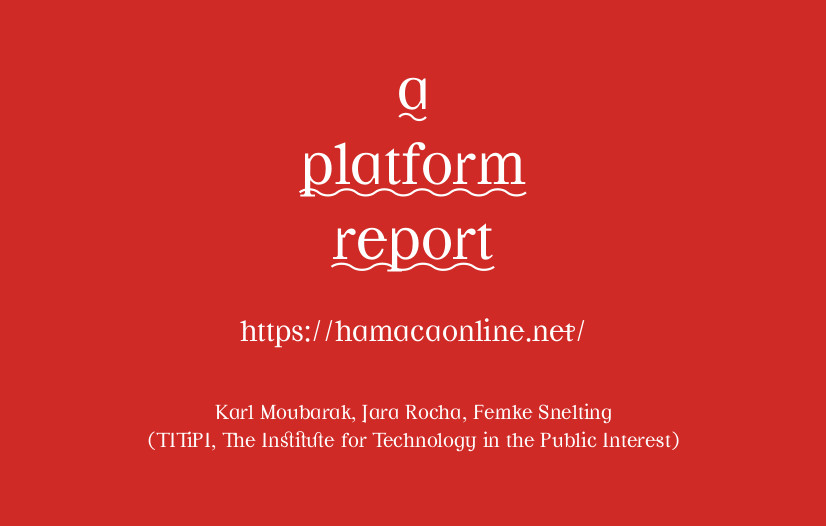
→ Descarrega informe a una plataforma / informe a una plataforma / a platform report (disponible en ESP / CAT / ENG)
A la fi de 2023 Hamaca va decidir començar el complex treball que suposa renovar la seva pàgina web. Romania la intenció de continuar articulant la presència en internet des de la major autonomia possible respecte a les grans empreses del capitalisme global, des de criteris d'accessibilitat al coneixement i de sostenibilitat de les infraestructures i grups humans que mantenen la pàgina –aspectes que van ser prioritaris en el disseny de la web actual, inaugurada en 2014. Per això, es va organitzar una fase 0 de treball en la qual, al costat d'activistes, investigadors, desenvolupadors i teòriques políticament còmplices, s'analitzessin les potències i mancances d'hamacaonline.net, s'imaginessin possibles millores i es plantegés una taula de criteris que, sobre la base de l'ideal, acompanyés a la presa de decisions cap al (depenent dels recursos disponibles) possible.
Aquesta publicació presenta l'informe resultant de l'encàrrec que en aquesta fase es va fer a Karl Moubarak, Jara Rocha i Femke Snelting (TITiPI). Reuneix els principals aspectes que una pàgina web d'una entitat cultural deuria o podria tenir en compte entorn de criteris de sostenibilitat. L'informe s'articula entorn de la pàgina web d'Hamaca i el seu projecte de renovació, però des de l'inici té l'objectiu de servir de referència per a qualsevol tipus de projecte que documenti i comparteixi materials culturals, amb una especial dedicació als quals incorporen vídeo, servint hamacaonline.net com a cas d'estudi.
informe a una plataforma / informe a una plataforma / a platform report inclou una reflexió i posicionament tècnic-polític de partida; analitza les diferents dimensions infraestructurals, d'ús i manteniment de la web que podrien ser tingudes en compte i planteja un qüestionari entorn de criteris que poden ajudar a prendre decisions a l'hora de reestructurar un servei web.
<3 «Overall, we suggest that Hamaca should consider the process of reshaping the platform as a creative and collective experience about how to platform differently, and to keep that energy legible in the platform itself.»
The Institute for Technology in the Public Interest (TITiPI) és un projecte trans-pràctic d'activistes, artistes, enginyeres i teòriques iniciat per Miriyam Aouragh, Seda Gürses, Helen Pritchard i Femke Snelting. Convoquen a les comunitats per a articular, activar i reimaginar juntes el que podrien ser les tecnologies informàtiques de "interès públic", entenent que l'"interès públic" està sempre en procés de creació. Desenvolupen eines a partir dels feminismes, la teoria queer, la computació, la interseccionalitat, la anticolonialitat, els estudis sobre discapacitat, el materialisme històric i la pràctica artística per a generar vocabularis, imaginaris i metodologies actualment inexistents. TITiPI funciona com una infraestructura per a establir noves formes en les quals les pràctiques soci-tècniques i les tecnologies puguin donar suport a l'interès públic.
Coordinació i edició_ HAMACA
Text_ Karl Moubarak, Jara Rocha i Femke Snelting
Promou_ Programa d’Economia Social i Departament d’Empresa i Treball
Amb el suport de_ Ajuntament de Barcelona
Finança_ Ministerio de trabajo y economía social
